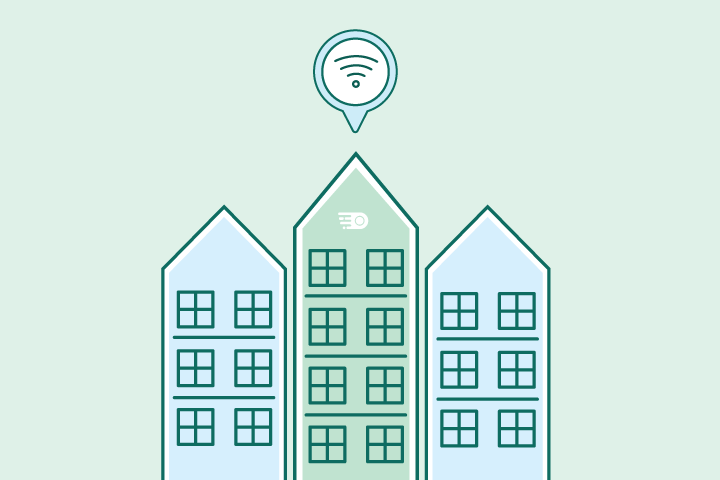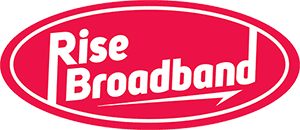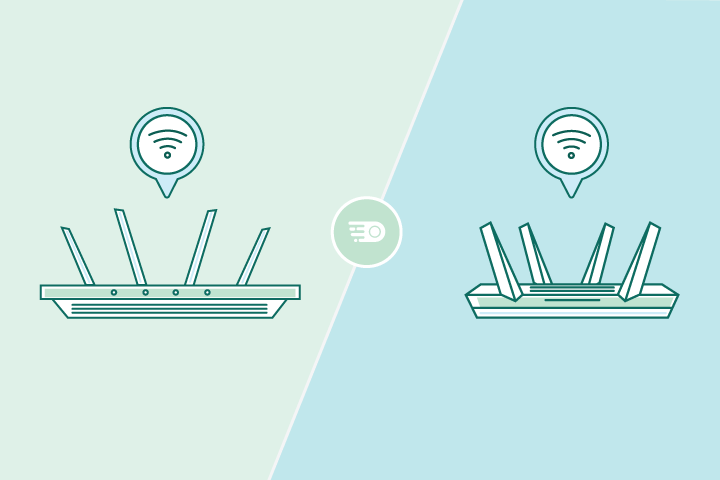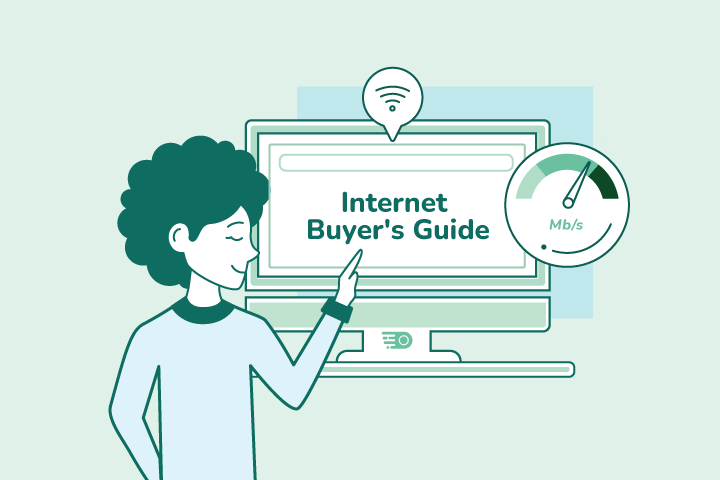How to Get Internet & WiFi for Apartments

HighSpeedOptions prides itself on providing honest, quality content. While we may be compensated when you make a purchase through links on our site, all opinions are our own. Here's how we make money.
Table of Contents
Given that most apartment buildings are in cities or other densely populated areas, you’ll likely have access to several types of internet connections and internet providers. Here’s a look at the best ways to get internet and WiFi for apartments and condominiums.
What to Know When Choosing Internet for Your Apartment
Before you begin your search for internet & WiFi for apartments, you’ll want to know a few things about your apartment and the building itself. It’ll help to know the answers to these questions before moving forward:
- Does the apartment building or property manager offer internet or WiFi to tenants, whether it’s included in monthly rent or as an add-on?
- Is the building and your apartment “internet ready” – meaning is the cabling for internet service already installed? (You may have to pay additional installation fees if it is not.)
- If it is pre-wired, what kind of internet service is it wired for…fiber? Cable? DSL?
Best Internet for Apartments
We’ll get into the different types of internet, what they offer and how to choose what’s right for you shortly. But when it comes to internet and WiFi for apartments in general, not all connections are created equal. For most situations, we would recommend fiber, fixed wireless, 5G, and then cable internet for your apartment. Why? These types of internet are the fastest, most reliable, and widely available for most apartment dwellers.
Even so, your solution will depend on your unique situation. Fixed wireless might be faster and more dependable than cable, but it’s typically more expensive and not as widely available. You might live in an area that only offers 5G or DSL as a solution.
Take a look at our overall comparison chart ranking the different types of internet for apartments and then read through our breakdown of each type below to decide what connection is best for you. When it comes to the internet, it’s never one size fits all!
| Internet type | Monthly price range | Download speed range | Reliability | Availability | Top providers |
| Fiber | $50-$200 | 100-10,000 Mbps | Highly reliable | Limited to urban areas, but becoming more available | AT&T, Google Fiber, Verizon Fios, Frontier, EarthLink |
| Fixed Wireless | $45-$70 | 10-10,000 Mbps | Private, secure connection | Limited | EarthLink |
| 5G Home Internet | $35-$75 | 85-1,000 Mbps | Moderately reliable | Widely available near cell towers | T-Mobile, Verizon, EarthLink |
| Cable | $40-$140 | 50-1,000 Mbps | Frequent outages, slowdowns during peak usage | Widely available | Xfinity, Cox, Spectrum, Optimum |
| Internet type | Fiber |
| Monthly price range | $50-$200 |
| Download speed range | 100-10,000 Mbps |
| Reliability | Highly reliable |
| Availability | Limited to urban areas, but becoming more available |
| Top providers | AT&T, Google Fiber, Verizon Fios, Frontier, EarthLink |
| Internet type | Fixed Wireless |
| Monthly price range | $45-$70 |
| Download speed range | 10-10,000 Mbps |
| Reliability | Private, secure connection |
| Availability | Limited |
| Top providers | EarthLink |
| Internet type | 5G Home Internet |
| Monthly price range | $35-$75 |
| Download speed range | 85-1,000 Mbps |
| Reliability | Moderately reliable |
| Availability | Widely available near cell towers |
| Top providers | T-Mobile, Verizon, EarthLink |
| Internet type | Cable |
| Monthly price range | $40-$140 |
| Download speed range | 50-1,000 Mbps |
| Reliability | Frequent outages, slowdowns during peak usage |
| Availability | Widely available |
| Top providers | Xfinity, Cox, Spectrum, Optimum |
Want to put your current connection to the test? Run an internet speed test to see if your ISP is delivering on its promises.
 Wired Internet for Apartments
Wired Internet for Apartments
Most apartments are already pre-wired for some type of internet, whether that be fiber, cable, or DSL internet. Here are the most common types of wired internet services available in apartment buildings or complexes:
Fiber Internet
Fiber internet uses thin cables that connect to ethernet ports to deliver a fast, reliable connection. These fiber optic cables transmit data via light instead of electric signals.
It is superior to other internet connection types because it’s fast, has very low internet latency, and can support many devices and demanding activities like streaming HD video. You’re more likely to have access to fiber if your apartment is in an urban area, but it might also be more expensive than other internet options.
- Best internet protection
- Unlimited data included
- No credit checks
Cable Internet
Cable internet is widely available with different providers that frequently offer bundled services. Three out of five homes have cable internet in the US alone. It also offers high speeds and might include unlimited data, depending on the provider.
Cable internet uses a coaxial cable for a solid connection to your provider’s network instead of copper phone lines. This is the same cabling that connects to your cable TV service, so most apartments are already wired for it.
- Same-day installations
- 8+ million free WiFi hotspots
- Unlimited data available
DSL Internet
Since it’s distributed over the same wires as telephone service, DSL internet is the most widely-available internet service, and you’ll find that almost any apartment is already wired for it. Other than availability, the main benefit of DSL internet is that it is fairly inexpensive. However, it is also one of the slowest broadband internet connections. DSL internet speeds top out at 100 Mbps, and your overall speed will depend on how far your apartment is from the provider’s nearest hub. For these reasons, it is not the best internet for apartments.
- Simplified pricing
- Unlimited data included
- No annual contract required
Cost Considerations for Wired Apartment Internet
It’s crucial to understand the cost implications of different internet types for your apartment. Here’s a quick overview:
- Fiber Internet: Generally ranges from $50 to $100 per month, depending on speed and provider.
- Cable Internet: Costs can vary from $30 to $80 monthly. Bundling with cable TV might offer savings.
- DSL Internet: One of the more affordable options, with prices typically between $20 and $50 per month.
Understanding these costs can help you budget accordingly and choose the best option for your internet needs.
Understanding the Installation Process
Different internet types require varying installation processes. For instance, fiber may require professional setup, while DSL usually involves simpler, self-installation kits. Discussing installation options with your provider beforehand can save you time and hassle.
 Wireless Internet for Apartments
Wireless Internet for Apartments
The great thing about wireless internet is that you don’t need a pre-wired connection to get internet & WiFi in your apartment, and some form of it is available almost anywhere. Take a look at the best wireless internet for apartment dwellers, especially in urban areas:
Fixed Wireless Internet
Fixed wireless internet is similar to satellite internet, but it uses radio signals between the provider’s tower and a receiver in your apartment to transmit data. Speeds vary based on distance from the provider’s tower, number of users, and the service package selected, but in urban areas where providers have invested in their network, fixed wireless can be fast and affordable internet for apartments solution. It’s more reliable than cellular hotspots, it can be affected by physical obstructions and severe weather.
- Fast speeds in rural areas
- Affordable prices
- Quick installations
5G Home Internet
5G stands for “fifth generation.” It’s most commonly seen with mobile plans, but it’s growing in popularity with home internet, especially internet for apartments. 5G internet offers fast speeds, low latency, and quick installation time. It’s entirely wireless and sometimes has no data caps depending on your provider. For a connection to qualify as 5G, the minimum bandwidth must be 100 Mbps.
5G has not replaced home internet quite yet, but it’s on its way. Providers like AT&T and Verizon are in the process of establishing reliable 5G across the nation.
Mobile Hotspot
Mobile hotspots are mobile internet connections that convert 5G signals into WiFi in apartments. If you have a data plan on your phone, you can use it as a hotspot to get internet in your apartment. You can also purchase an additional hotspot device to keep in your apartment that can be added to your mobile plan. Check with your provider for available hardware, pricing, and usage terms.
Local WiFi Hotspot
Like mobile hotspots, local hotspots are physical locations where you can connect to the internet, like coffee shops, libraries, and airports. You can connect any wireless-enabled device to a local hotspot to get WiFi for apartments. However, public hotspots can be a significant security threat, so be cautious before connecting.
How to Keep Your Apartment Internet Secure
You wouldn’t want an unwanted guest in your apartment. The same goes for your WiFi. When living in an apartment, you share walls, hallways, elevators, and common spaces with your neighbors and their guests. Most WiFi signals will reach beyond your apartment walls and be accessible to anyone nearby.
Making sure your WiFi is equipped with a secure, difficult to guess password is essential. A password-free WiFi is a no-go in an apartment setting.
If you’re ever suspicious that your neighbor might be using your WiFi, you don’t have to worry about an awkward conversation. Most WiFi routers and internet service providers offer an app that can identify which devices are connected to your internet. You may even be able to enable notifications to get alerts anytime a new device is added. If you notice an unfamiliar device listed, change your password and reset your router. While it may be a pain to log back in on all your devices with a new password, it’s much safter than letting a stranger freeload off your WiFi.
If you’re the host of the neighborhood, consider setting up a guest WiFi network for your home. This way, you can keep your network secure and offer family, friends, and guests a way to connect at your place. A guest WiFi network is easy to set up and doesn’t cost any additional fees with your internet service provider. You can typically set this up in the same app where you can monitor devices on your network. When setting up your guest WiFi, make sure you’re giving it a unique name and password separate from your home network.

Buying vs. Renting: Modems and Routers for Your Apartment
Choosing whether to buy or rent isn’t just a question when you’re apartment shopping. Any internet connection you choose will require hardware: a modem and router, or a combined device.
A modem, which is short for “modulator-demodulator,” is a hardware device that connects your home with your ISP. Think of it as the doorway between the internet and your home. A router connects your devices to that internet – whether hard-wire connections (ethernet cables) or WiFi. Many devices nowadays are equipped to serve as both a modem and a router, saving you time, money, and space when shopping.
If your landlord offers WiFi service to your apartment, you may not need additional hardware to get started. If you’re responsible for connecting your internet on your own, most ISPs offer hardware to rent when you sign up for their service. Whether you choose to buy or rent is up to you, your economic situation, and your future plans.
If you don’t plan on staying in the apartment for long, renting might be an easier solution. If you move a lot and change providers frequently, a universal router and modem that’s able to work with several providers might be beneficial. In most cases, if you choose to stay in one apartment or with one provider for several years, buying is the best option since rental fees will eventually cost more than buying a modem and router outright.
Final Thoughts
When choosing the best way to get internet and WiFi for apartments, consider factors such as your location, usage habits, number of devices, and budget. Compare plans and providers to find the best deal. The best option is one that aligns with your specific needs and internet lifestyle. Whether you choose fiber internet, a cellular hotspot, public WiFi, or fixed wireless internet, be sure to go with a reliable and stable internet provider for the best experience.
Apartment Internet & WiFi FAQs
There are many ways to get internet for apartments. Most apartments and buildings will be “pre-wired,” meaning that they already have the cables installed to get going with an internet connection. Most will be ready for cable internet or DSL internet, as fiber is newer and not as widely available.
If you’d rather have wireless or WiFi internet for apartments, you can choose from 5G internet, fixed wireless internet, and even satellite internet. However, you can find a more affordable and faster internet connection than satellite in urban areas. Enter your zip code here to see what internet providers are available in your area.
That will entirely depend on your building and property manager. Some buildings and complexes offer internet as an incentive, but you’ll most likely have to find your own internet service. If internet is offered free to tenants over a public WiFi, be sure to use a virtual private network (VPN) service and take other privacy and security precautions.
Yes you can as long as there is a fiber internet provider in your area and that the infrastructure is in place to access fiber internet in your apartment.
Depending on the type of internet connection you go with, you’ll generally need a modem and a router. Some internet providers include these with their service, or you can buy your own modem or router. If you want to connect all of your devices in your apartment wirelessly, you will need a WiFi router. If you’re going to use a wireless internet service, like 5G, fixed wireless, or a mobile hotspot, most providers make the necessary equipment available for rent or purchase.
Find providers in your area
Table of Contents









